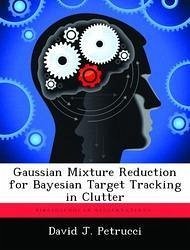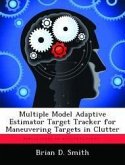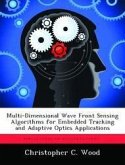The Bayesian solution for tracking a target in clutter results naturally in a target state Gaussian mixture probability density function (pdf) which is a sum of weighted Gaussian pdfs, or mixture components. As new tracking measurements are received, the number of mixture components increases without bound, and eventually a reduced-component approximation of the original Gaussian mixture pdf is necessary to evaluate the target state pdf efficiently while maintaining good tracking performance. Many approximation methods exist, but these methods are either ad hoc or use rather crude approximation techniques. Recent studies have shown that a measure-function-based mixture reduction algorithm (MRA) may be used to generate a high-quality reduced-component approximation to the original target state Gaussian mixture pdf. To date, the Integral Square Error (ISE) cost-function-based MRA has been shown to provide better tracking performance than any previously published Bayesian tracking in heavy clutter algorithm. Research conducted for this thesis has led to the development of a new measure function, the Correlation Measure (CM), which gauges the similarity between a full- and reduced-component Gaussian mixture pdf. This new measure function is implemented in an MRA and tested in a simulated scenario of a single target in heavy clutter. Results indicate that the CM MRA provides slightly better performance than the ISE cost-function-based MRA, but only by a small margin.
Hinweis: Dieser Artikel kann nur an eine deutsche Lieferadresse ausgeliefert werden.
Hinweis: Dieser Artikel kann nur an eine deutsche Lieferadresse ausgeliefert werden.








